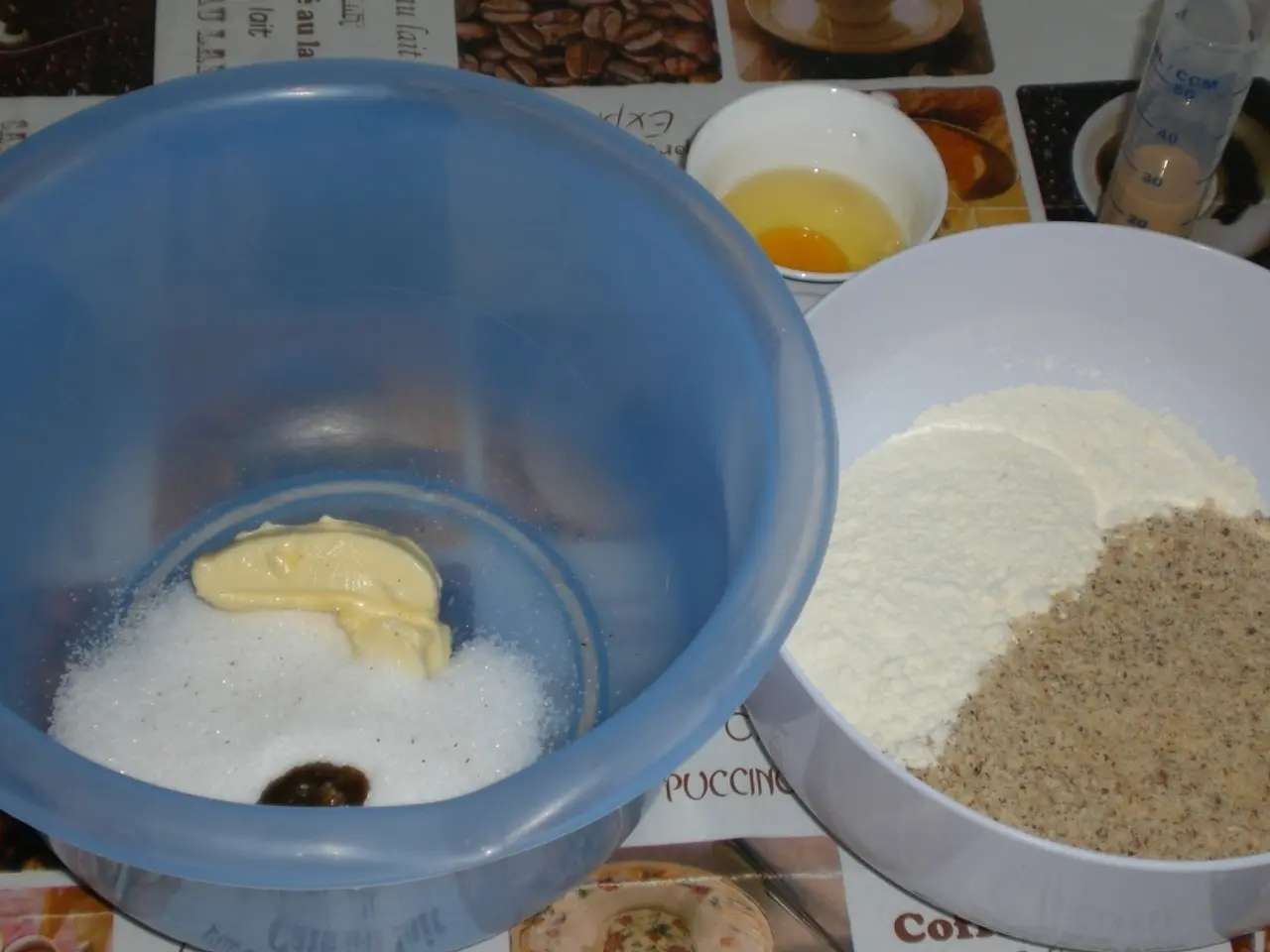Diet Therapy for Crohn's Disease: Effectiveness, Advice, and Insights
In many parts of the world, enteral diets play a significant role in managing Crohn's disease, particularly in children. These specially formulated liquid diets can help induce remission, heal the lining of the gastrointestinal tract, and improve overall nutrition.
Exclusive enteral nutrition (EEN), a highly effective first-line therapy for pediatric Crohn's disease, is recommended by major pediatric gastroenterology societies. EEN reshapes the gut microbiota, improves epithelial barrier function, and modulates immune responses, leading to remission rates of about 67–80%.
Children with Crohn's disease may need to follow an enteral diet for 8-12 weeks. The nutrition in an enteral diet, known as enteral nutrition, passes through the intestines (meaning "enteral"). A healthcare professional can help a person choose which formula type to use, with examples including Boost, Ensure, and Orgain.
When enteral feedings involve a tube, doctors may connect it to a pump that delivers the formula at a set rate. An enteral diet can give a person's digestive system a rest, particularly during a flare-up, when a low-fiber diet may be recommended to avoid worsening stomach pain.
In children, EEN is usually preferred as a liquid-only diet for 6 to 8 weeks to induce remission, often administered orally or via nasogastric tube if oral tolerance is poor. Pediatric protocols emphasize multidisciplinary support and close monitoring.
Alternatives and modifications to EEN include the Crohn’s Disease Exclusion Diet (CDED) combined with partial enteral nutrition (PEN). This approach uses a whole-food diet alongside partial formula nutrition and has been shown to be better tolerated than EEN.
In adults with Crohn’s disease, EEN is less commonly used and less tolerated compared to children, though it remains effective for inducing remission and reducing surgical risks in high-risk patients. Adults often require nasogastric feeding due to taste and palatability challenges with liquid-only diets.
In conclusion, EEN is a cornerstone of pediatric Crohn’s disease management, with dietary modifications like CDED+PEN emerging as promising alternatives. In adults, enteral nutrition serves mainly as adjunctive therapy focused on nutritional support and remission in selected cases.
- Some medical-conditions, like chronic-diseases such as Crohn's disease, benefit greatly from enteral diets, which are established to play a crucial role in management, especially for children.
- Enteral diets consist of specially formulated liquid diets designed to help in inducing remission, healing the gastrointestinal tract lining, and improving overall nutrition.
- Exclusive enteral nutrition (EEN), a first-line therapy for pediatric Crohn's disease, is recommended by major pediatric gastroenterology societies.
- During enteral feeding, the nutrition, referred to as enteral nutrition, passes through the intestines, providing a break to the digestive system, particularly during a flare-up.
- A healthcare professional can guide a person on choosing the appropriate formula type for enteral feeding, with options like Boost, Ensure, and Orgain available.
- In cases where enteral feedings involve a tube, doctors may use a pump to deliver the formula at a controlled rate.
- Some diets, like the Crohn’s Disease Exclusion Diet (CDED) combined with partial enteral nutrition (PEN), provide alternatives and modifications to EEN, offering better tolerance.
- In adults with Crohn’s disease, EEN is often used less frequently and less tolerated than in children, but it remains effective in inducing remission and reducing surgical risks for high-risk individuals.
- Fitness-and-exercise, health-and-wellness, and even sports-betting aside, maintaining proper nutrition, including other nutrition types, is key for effective management of chronic-kidney-disease and chronic-diseases like Crohn's.
- CBD may prove beneficial as a supplement, helping manage symptoms and improve the quality of life for individuals with Crohn's disease, although more scientific research is needed.
- Dietary modifications and treatments, such as EEN and CDED+PEN, combined with medical support can lead to better management of symptoms, enhancing the overall quality of life for personas living with Crohn's disease.




